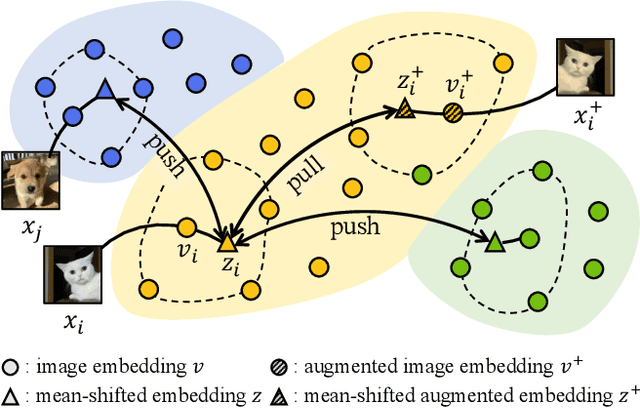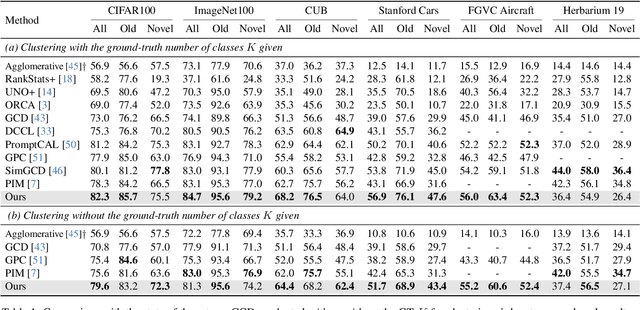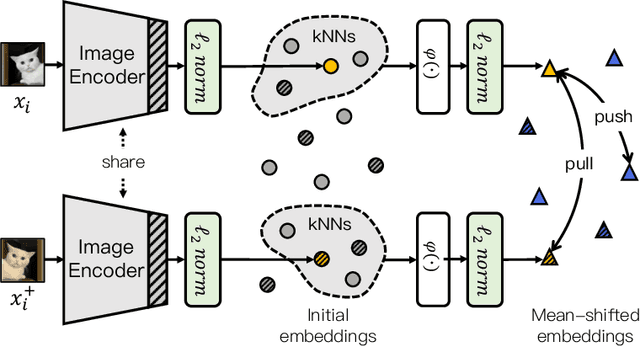Sua Choi
Memory-Modular Classification: Learning to Generalize with Memory Replacement
Apr 08, 2025Abstract:We propose a novel memory-modular learner for image classification that separates knowledge memorization from reasoning. Our model enables effective generalization to new classes by simply replacing the memory contents, without the need for model retraining. Unlike traditional models that encode both world knowledge and task-specific skills into their weights during training, our model stores knowledge in the external memory of web-crawled image and text data. At inference time, the model dynamically selects relevant content from the memory based on the input image, allowing it to adapt to arbitrary classes by simply replacing the memory contents. The key differentiator that our learner meta-learns to perform classification tasks with noisy web data from unseen classes, resulting in robust performance across various classification scenarios. Experimental results demonstrate the promising performance and versatility of our approach in handling diverse classification tasks, including zero-shot/few-shot classification of unseen classes, fine-grained classification, and class-incremental classification.
Contrastive Mean-Shift Learning for Generalized Category Discovery
Apr 15, 2024



Abstract:We address the problem of generalized category discovery (GCD) that aims to partition a partially labeled collection of images; only a small part of the collection is labeled and the total number of target classes is unknown. To address this generalized image clustering problem, we revisit the mean-shift algorithm, i.e., a classic, powerful technique for mode seeking, and incorporate it into a contrastive learning framework. The proposed method, dubbed Contrastive Mean-Shift (CMS) learning, trains an image encoder to produce representations with better clustering properties by an iterative process of mean shift and contrastive update. Experiments demonstrate that our method, both in settings with and without the total number of clusters being known, achieves state-of-the-art performance on six public GCD benchmarks without bells and whistles.
 Add to Chrome
Add to Chrome Add to Firefox
Add to Firefox Add to Edge
Add to Edge